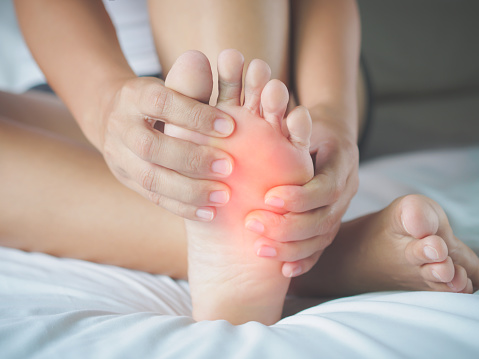
If you develop heel pain, you may first try some home remedies, such as rest, to ease your symptoms. If your heel pain doesn’t get better within two to three weeks, you should make an appointment with your doctor.
Your doctor will ask about your medical history and will examine your foot. They may order X-rays or other imaging tests to rule out other causes of your pain, such as a stress fracture or arthritis.
Heel pain is a common complaint that can have a variety of causes. In many cases, the underlying cause of heel pain can be treated successfully with conservative measures, such as ice, rest, and over-the-counter anti-inflammatory medications. However, some cases of heel pain may require more aggressive treatment, such as physical therapy or orthotic devices.
Only a qualified medical professional in Podiatry Essendon can determine the underlying cause of heel pain and recommend the most effective course of treatment.
Heel pain is a common problem that can be caused by a variety of conditions. While most cases of heel pain resolve on their own with home care, some types of heel pain can indicate a more serious condition.
It is important to call your doctor right away if you experience heel pain that is accompanied by:
- Swelling
- Redness
- Warmth
You can try these over-the-counter medication or home remedies:
- Resting
- Elevating your foot – This can help to reduce inflammation
- Applying ice or a cold compress
- Stretch your calf muscles and Achilles tendon
If the pain is due to a stress fracture, treatment may involve wearing a boot or cast for several weeks. Additionally, if you have diabetes or another condition that affects blood flow to your feet, any foot pain should be evaluated by a doctor as soon as possible to ensure that it does not progress into a more serious condition. By paying attention to your body and knowing when to seek medical care, you can help keep your feet healthy and pain-free. In some cases, surgery may be necessary to correct the problem.
Heel pain can vary from a dull ache to sharp, excruciating pain. The most common cause of heel pain is overuse. This can happen if you walk, run, or stand for long periods of time on hard surfaces. There are several things you can do to prevent heel pain. You can avoid walking or standing barefoot on hard surfaces. You can wear comfortable shoes that provide support for your heels and arch. You can take breaks often when walking or standing for long periods of time. And finally, stretching your Achilles tendon and calf muscles can also help prevent heel pain. It is always best to prevent the problem in the first place.